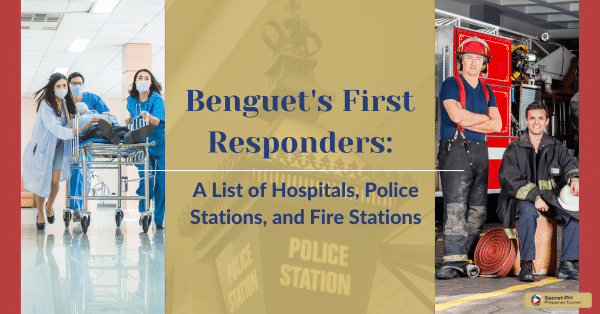Emergencies can happen at any time, and knowing how to quickly access emergency services can be a matter of life and death. In the Philippines, there are various emergency services available to the public, including medical, fire, and police services.
It is important to know what services are available in the Philippines, as well as how to access them quickly and efficiently. Knowing the different emergency hotlines and when to call them can make all the difference in a time of crisis. It is also important to be prepared for common emergency scenarios and know how to handle them.
In this article, we’ll provide you with tips on how to quickly access emergency services in the Philippines and stay safe during an emergency. With this information, you’ll be better prepared to handle any unexpected situation that may arise while in the Philippines.
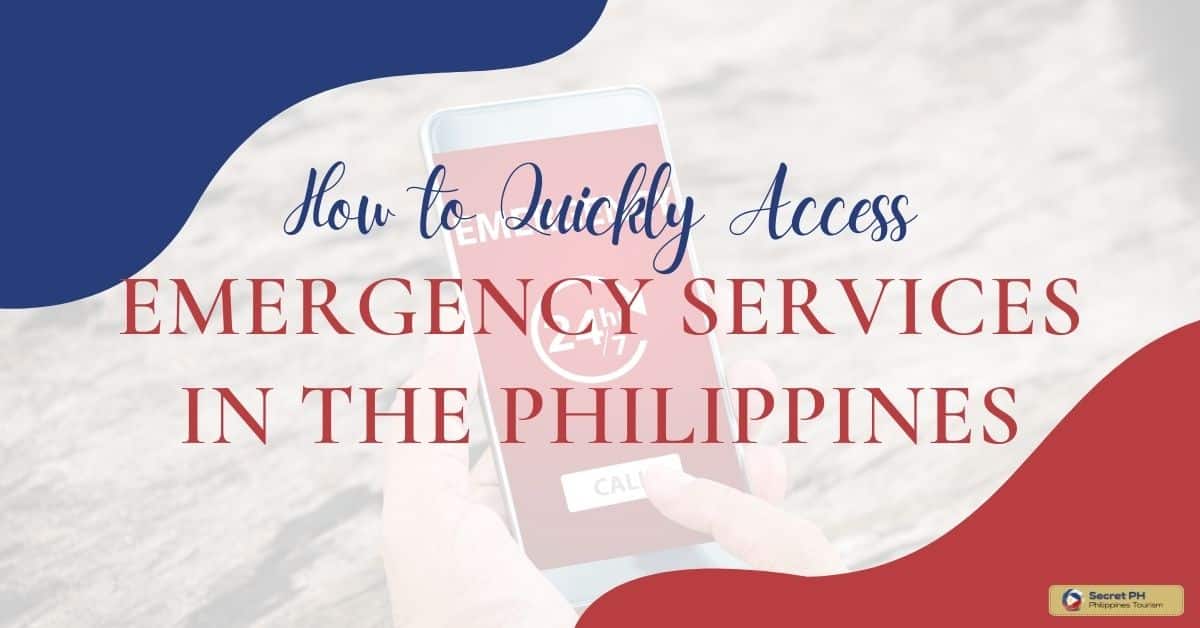
Understanding the Emergency Services in the Philippines
The emergency services in the Philippines are critical structures responsible for responding to and managing public safety issues. These services include emergency medical services (EMS), firefighters, and police departments. Understanding the roles and responsibilities of each of these services is crucial in ensuring prompt and effective responses to emergencies.
EMS providers are responsible for administering on-site medical care and transportation of patients to the hospital. They have trained and knowledgeable medical practitioners, who are well-equipped to handle medical emergencies. Firefighters are responsible for responding to fires and handling hazardous materials, while the police are responsible for enforcing the law and maintaining order.
These services work together to ensure the safety and security of the public, and their prompt response is essential in emergency situations. It is important for citizens to understand how to access these services and how to cooperate with them effectively to ensure the best possible outcomes.
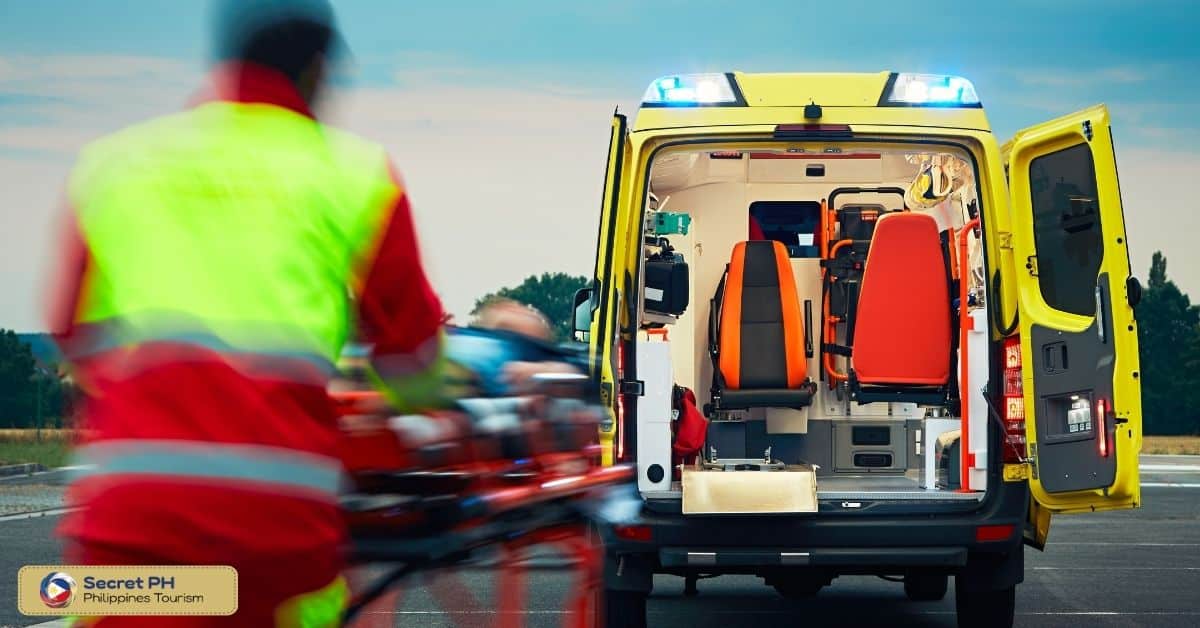
Preparing for Emergencies: What You Need to Know
Emergencies can happen anytime, anywhere, and being prepared for them is crucial. In the Philippines, various natural disasters, such as typhoons, earthquakes, and floods, can strike with little warning. Knowing what to do in an emergency situation can save lives. Here, we’ll discuss how to prepare for emergencies in the Philippines.
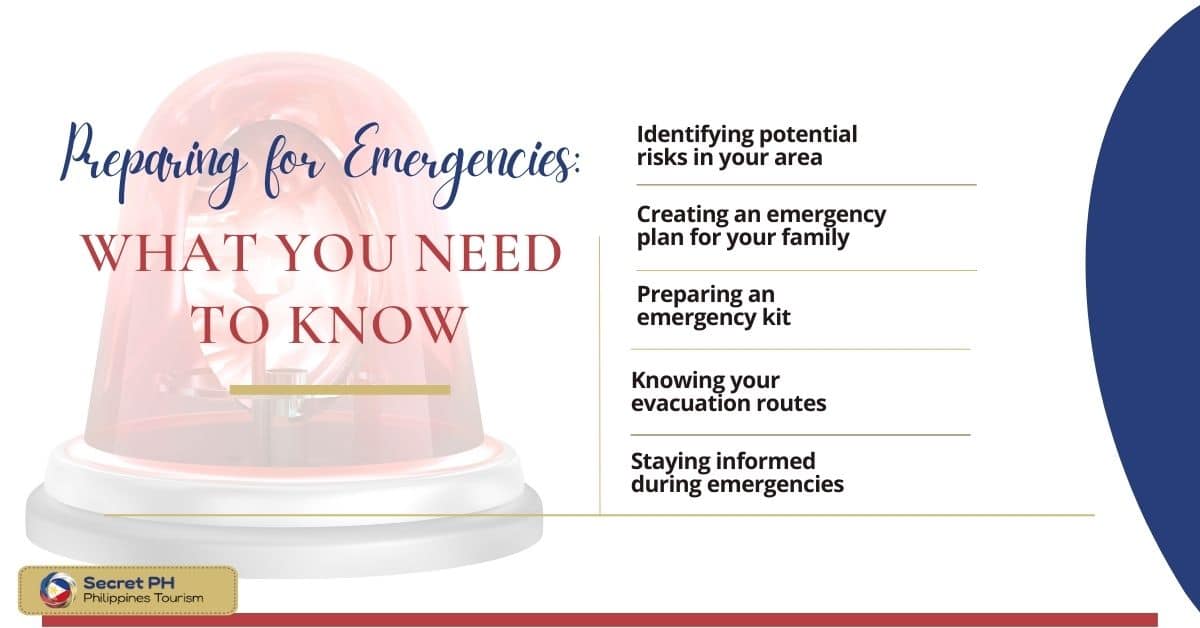
Identifying potential risks in your area
The first step in preparing for an emergency is to identify potential risks in your area. This could include natural disasters such as floods, typhoons, or earthquakes, or man-made emergencies such as fires or terrorist attacks. Once you identify the risks, you can take steps to mitigate their impact on your family.
Creating an emergency plan for your family
Create a detailed emergency plan with your family, including where to meet in case of an emergency, contact information for emergency services and family members, and a plan for pets. Ensure everyone knows what to do in an emergency and assign specific tasks to each family member.
Preparing an emergency kit
An emergency kit should include food, water, medication, first aid supplies, and important documents such as identification papers, insurance policies, and contact information for family members and emergency services.
Knowing your evacuation routes
It’s essential to know your evacuation routes in case you need to evacuate quickly. Plan multiple routes, and make sure everyone in the family knows the routes.
Staying informed during emergencies
Stay informed by listening to the news, local radio, or social media for updates on emergencies in your area. This information can help you make informed decisions on whether to evacuate or stay in place.
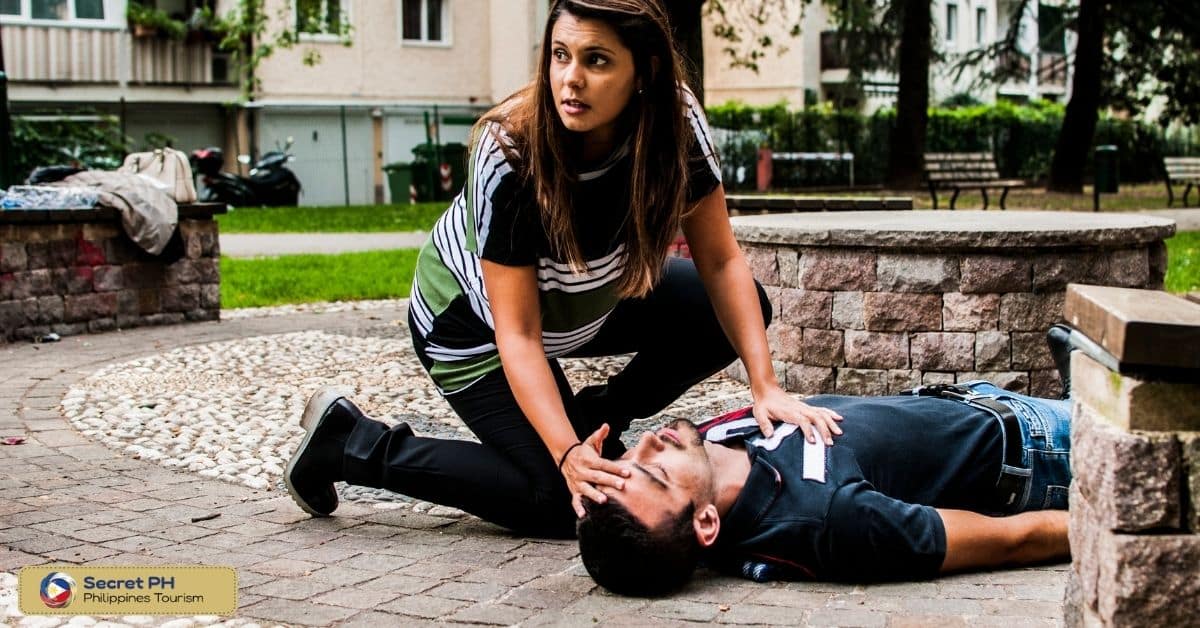
Knowing the Emergency Hotlines in the Philippines
In times of emergency, knowing how to quickly access emergency services can be a matter of life and death. In the Philippines, there are various emergency hotlines available to the public that can help you get assistance in an urgent situation. It is important to know what emergency hotlines are available and when to call them.
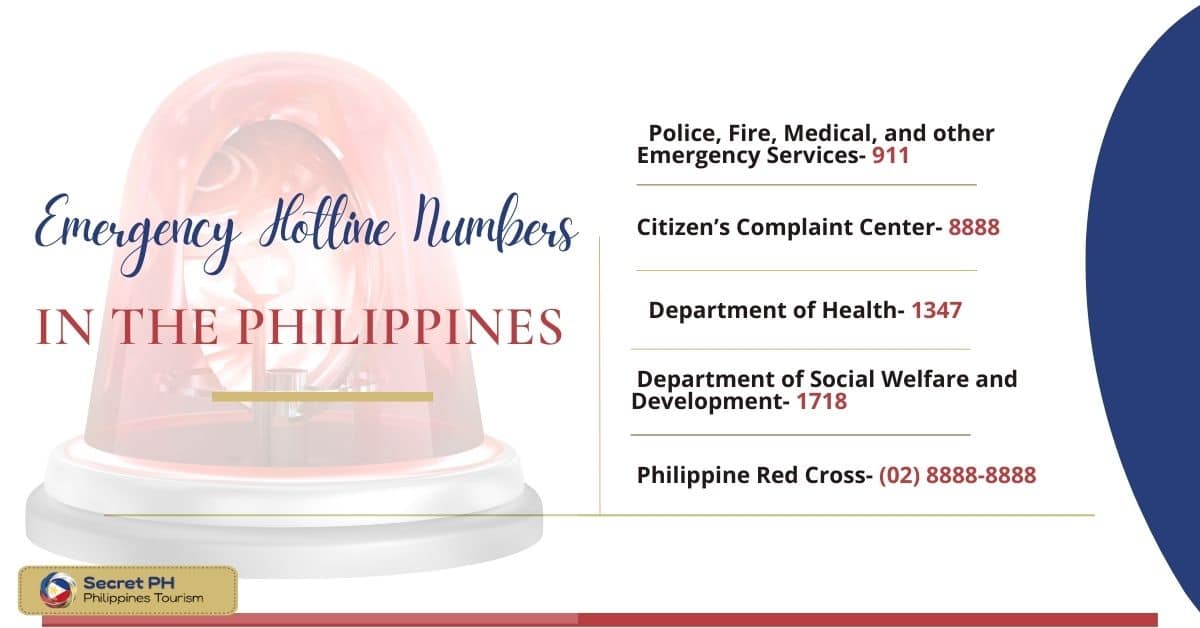
Emergency Hotline Numbers in the Philippines
There are several emergency hotlines in the Philippines that you can call when you need help. These include:
1. 911 – This is the national hotline for emergencies and is available 24 hours a day, seven days a week. It provides access to police, fire, medical, and other emergency services.
2. 8888 – This is the Citizen’s Complaint Center, available 24 hours a day, seven days a week. It handles non-emergency complaints about government services.
3. 1347 – This number is for the Department of Health hotline and can provide general advice on health-related issues.
4. 1718 – This is the Department of Social Welfare and Development hotline, which provides assistance to victims of abuse, natural disasters, and other emergencies.
5. (02) 8888-8888 – This is the Philippine Red Cross Hotline, available 24 hours a day, seven days a week. It provides assistance to victims of accidents, natural disasters, and other emergencies.
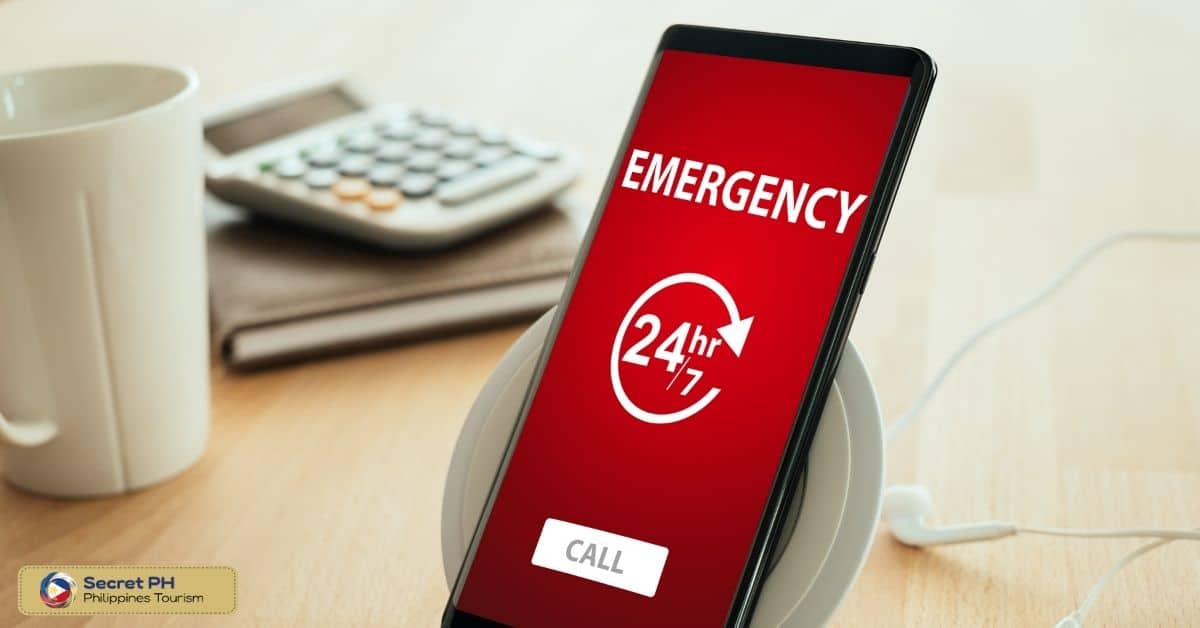
When to Call Emergency Services in the Philippines
When it comes to emergency services in the Philippines, knowing when and how to call for help can be the difference between life and death. It is important to know what emergencies require an immediate response from EMS, firefighters, or the police.
Generally speaking, any emergency that poses a threat to public safety or involves serious injuries should be reported immediately. This includes fires, medical emergencies, natural disasters, car accidents, and any suspicious or criminal activity. In cases of life-threatening situations, calling 911 is the best course of action.
In some cases, it may be difficult to determine whether a situation requires an emergency response. If you are uncertain about whether or not you should call for help, err on the side of caution and dial one of the emergency hotlines listed above.
The call-takers will be able to determine if help is needed and dispatch the appropriate services. In any case, it is important to stay calm and provide as much information as possible to ensure a prompt response from emergency services.
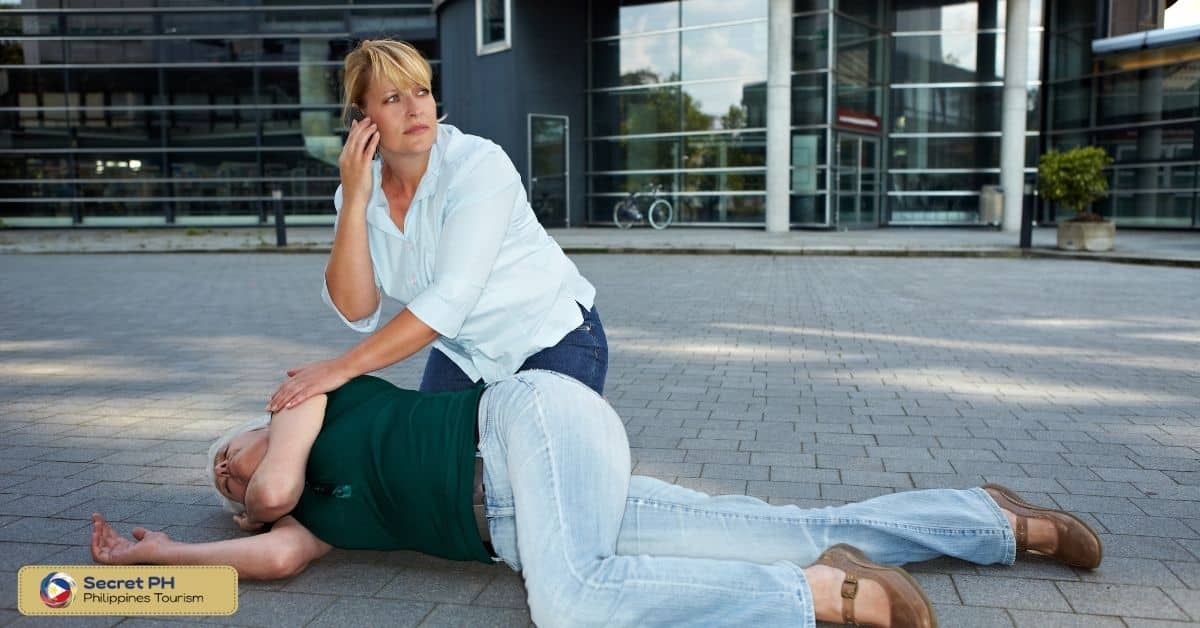
What to Expect When You Call for Emergency Services
When calling an emergency services hotline, it is important to stay calm and provide as much information as possible. Knowing what to expect when you make the call can help ensure a prompt and effective response from emergency services.
The Call-taker’s Questions
When dialing an emergency hotline, the call-taker will ask a number of questions to determine the severity and nature of the emergency. Questions may include:
• Where is the incident taking place?
• What type of emergency are you experiencing?
• How many people are injured or in danger?
• What is your contact information?
• Is there anything else you can tell us that may be relevant to the situation?
Provide as much detail as possible during the call, as this will help emergency services respond quickly and effectively.
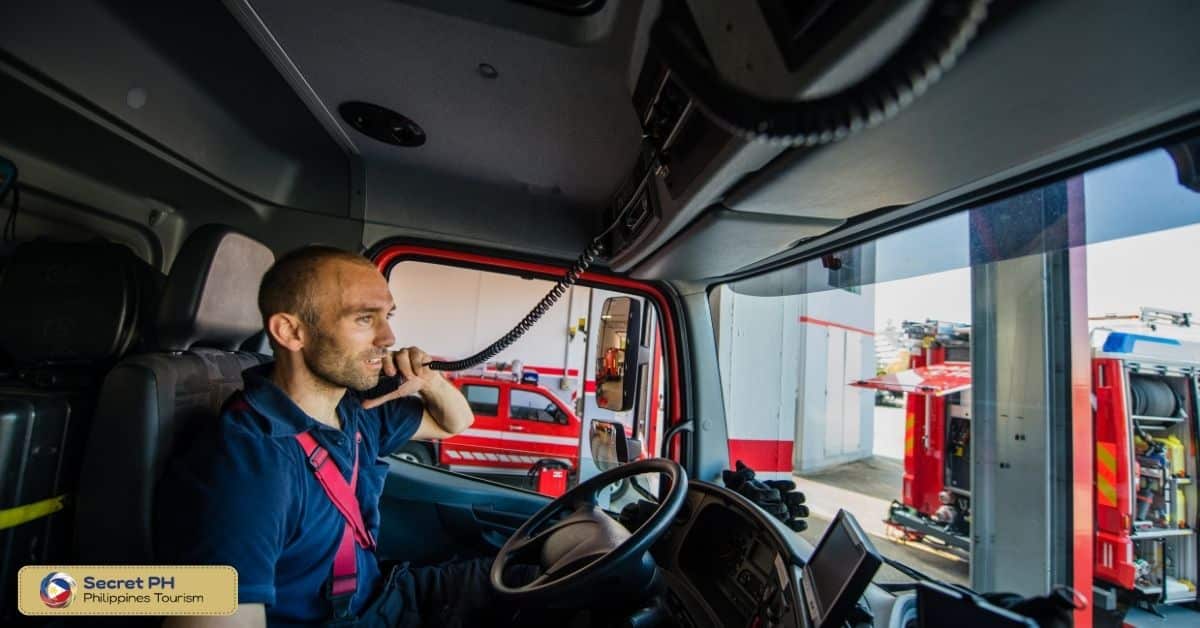
Dispatching Services
Once emergency services have been dispatched, it is important to stay on the line and provide any additional information that is requested. The call-taker may remain on the phone to direct the responders or send additional assistance if needed.
If you are able to safely wait for emergency services, it is important to stay in one place and remain visible to rescuers. If possible, bring a flashlight or other source of light to help responders locate you.
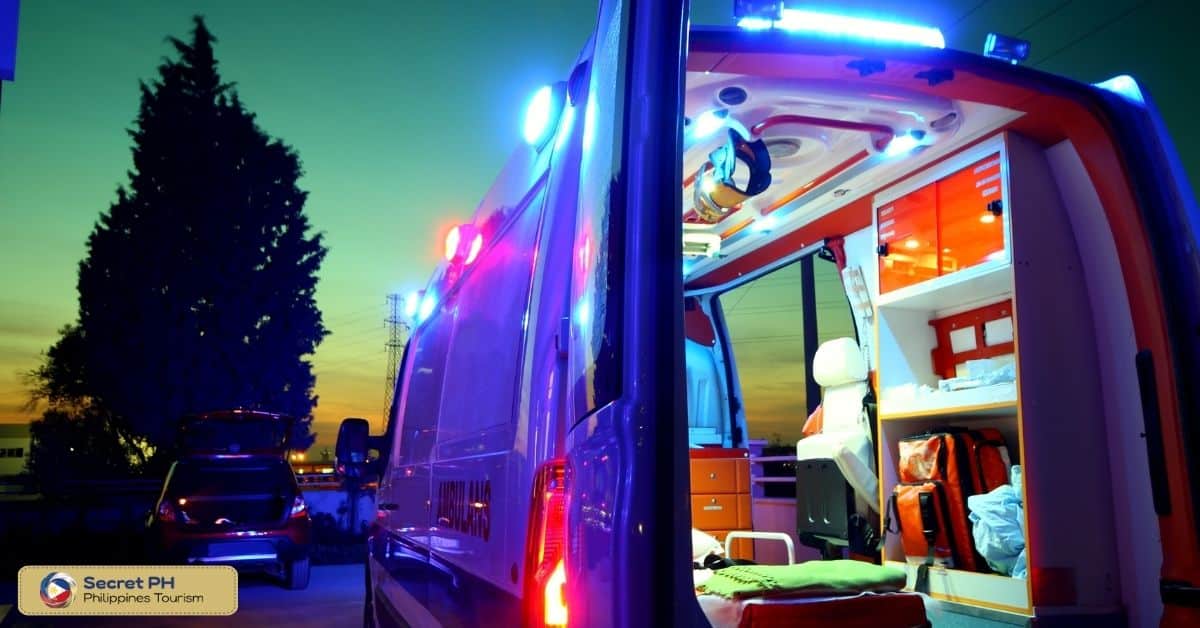
Common Emergency Scenarios and How to Handle Them
Emergencies can happen anytime, anywhere, and knowing how to quickly access emergency services is essential. But before you can call for help, it is important to understand common emergency scenarios and know how to handle them. In this article, we’ll discuss the most common emergency scenarios in the Philippines and provide tips on how best to handle them.
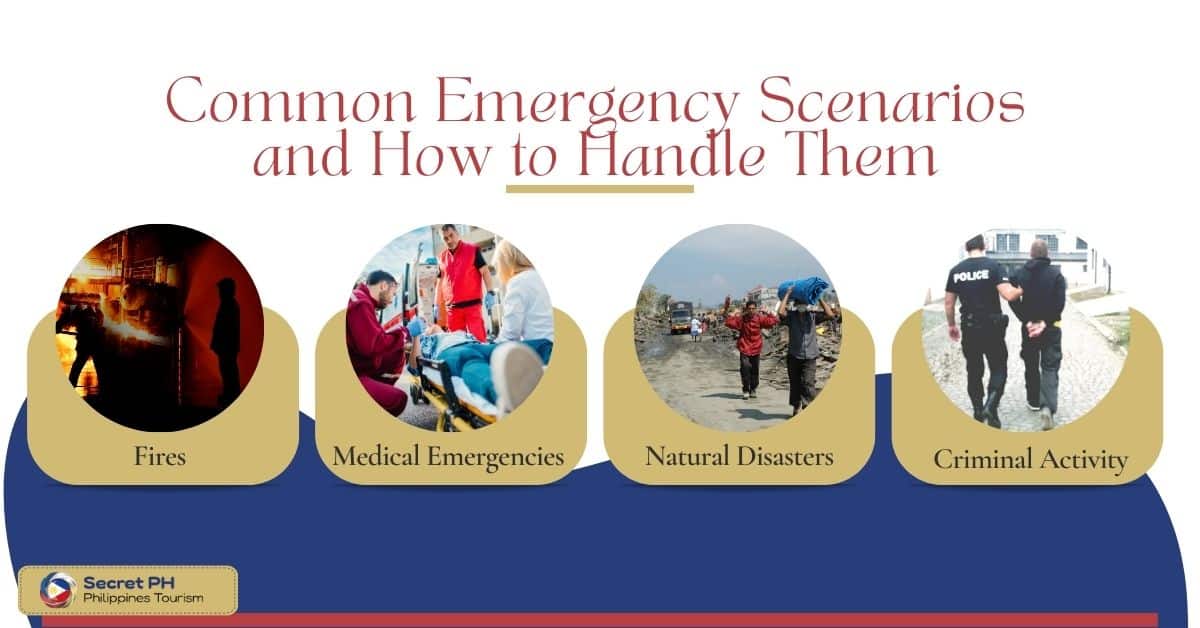
Fires
Fire is one of the most common emergencies in the Philippines, and it can happen anywhere. Fires can be caused by a variety of factors, including negligence, arson, or electrical issues. When a fire occurs, it’s important to stay calm and take action quickly.
Get to a safe place: If you are in the affected area, make sure to evacuate quickly and get to a safe location.
Call for help: Once you’re safely away from the fire, call 911 or one of the other emergency hotlines listed above.
Help others escape: If you are able to do so safely, help others escape from the fire.
Keep away from the area: Do not return to the affected area until it is safe to do so.
Medical Emergencies
Medical emergencies can range from minor injuries to life-threatening conditions, and they require quick action in order to ensure a positive outcome. When faced with a medical emergency, follow these steps:
Call for help: Immediately call 911 or one of the other available emergency hotlines.
Provide information: Provide detailed information about the patient’s condition, such as their age, medical history, symptoms, and any treatment they have received.
Follow instructions: Listen to the instructions provided by the dispatcher and follow them carefully.
Administer first aid: If possible, administer basic first aid to the patient until help arrives.
Stay with the patient: It is important to stay with the patient and provide comfort and reassurance until help arrives.
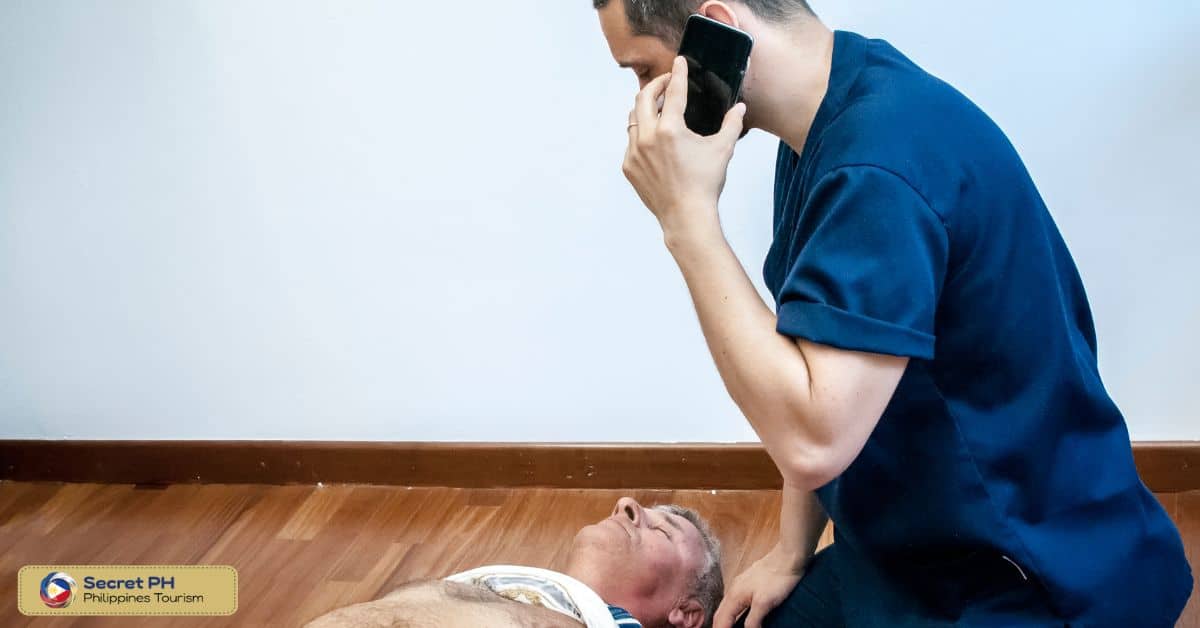
Natural Disasters
The Philippines is prone to natural disasters such as typhoons, earthquakes, and floods. While there is no way to prevent these disasters from occurring, it is important to have a plan in place for how to respond.
Monitor the news: Stay informed of any potential natural disasters by monitoring the local news or using social media.
Evacuate if necessary: If you are given the order to evacuate, do so immediately and leave everything behind.
Call for help: If you are unable to evacuate due to injury or other circumstances, call 911 or one of the other available emergency hotlines.
Follow official instructions: Listen carefully to any official instructions on how best to stay safe during a natural disaster.
Stay put: Unless instructed to evacuate, stay in the safest available place until it is safe to move.
Criminal Activity
Criminal activity can occur anywhere, and knowing how to handle it is essential for your safety. If you see suspicious or criminal activity, follow these steps:
Stay away from the area: Move away from the affected area immediately and get to a safe place.
Call for help: Dial 911 or one of the other emergency hotlines listed above.
Provide information: When you call, provide as much detail as possible about what is happening.
Follow official instructions: Listen carefully to any instructions provided by the dispatcher or police.
Remain calm: Stay calm and follow all instructions until help arrives.
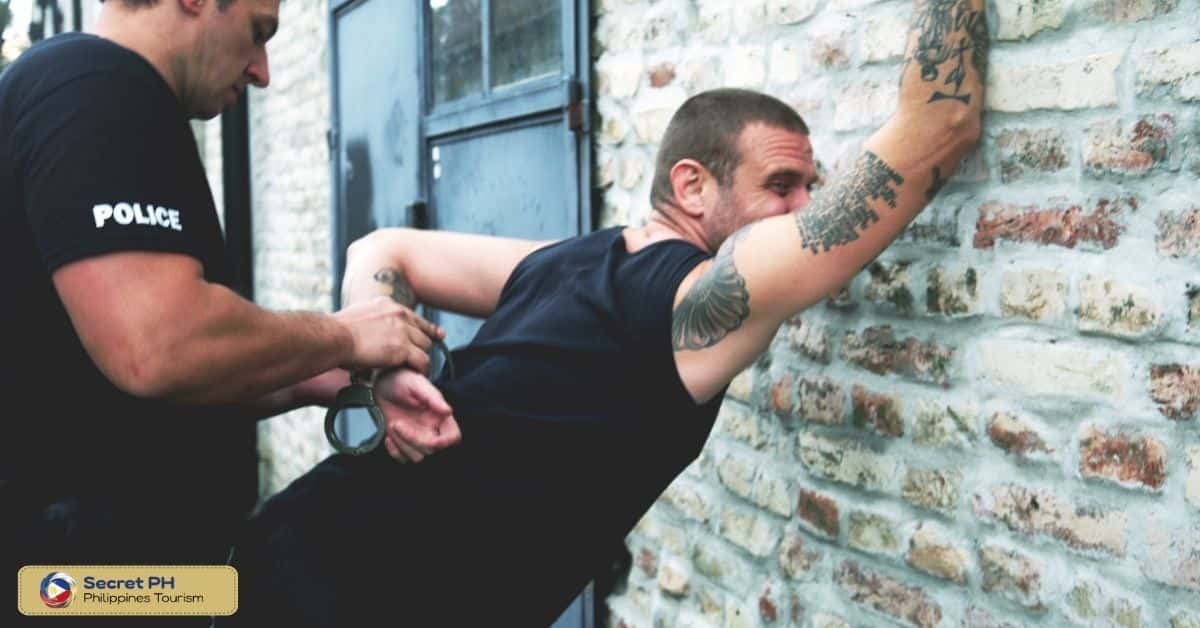
Important Tips for Staying Safe During an Emergency
In times of emergency, staying safe is paramount. Emergencies can happen anytime, anywhere, and being prepared for them is essential. Knowing what to do during an emergency can help reduce the risk of injury or death. Here are some important tips for staying safe during an emergency:
1. Stay calm– In any type of emergency, it is important to stay calm. This will allow you to think clearly and make decisions quickly.
2. Follow instructions– Listen carefully to the instructions provided by emergency personnel, and follow them diligently.
3. Know your evacuation routes– Plan multiple evacuation routes in case you need to get away quickly. Make sure everyone in the family knows these routes as well.
4. Stay informed– Monitor the news or social media for updates on emergencies in your area. This can help you make informed decisions on whether to evacuate or stay in place.
5. Call for help– If you are faced with an emergency, dial 911 or one of the other available emergency hotlines immediately and provide as much information as possible.
6. Prepare an emergency kit– An emergency kit should include food, water, medication, first aid supplies, and important documents such as identification papers, insurance policies, and contact information for family members and emergency services.
7. Stay away from danger– Do not return to the affected area until it is safe to do so.
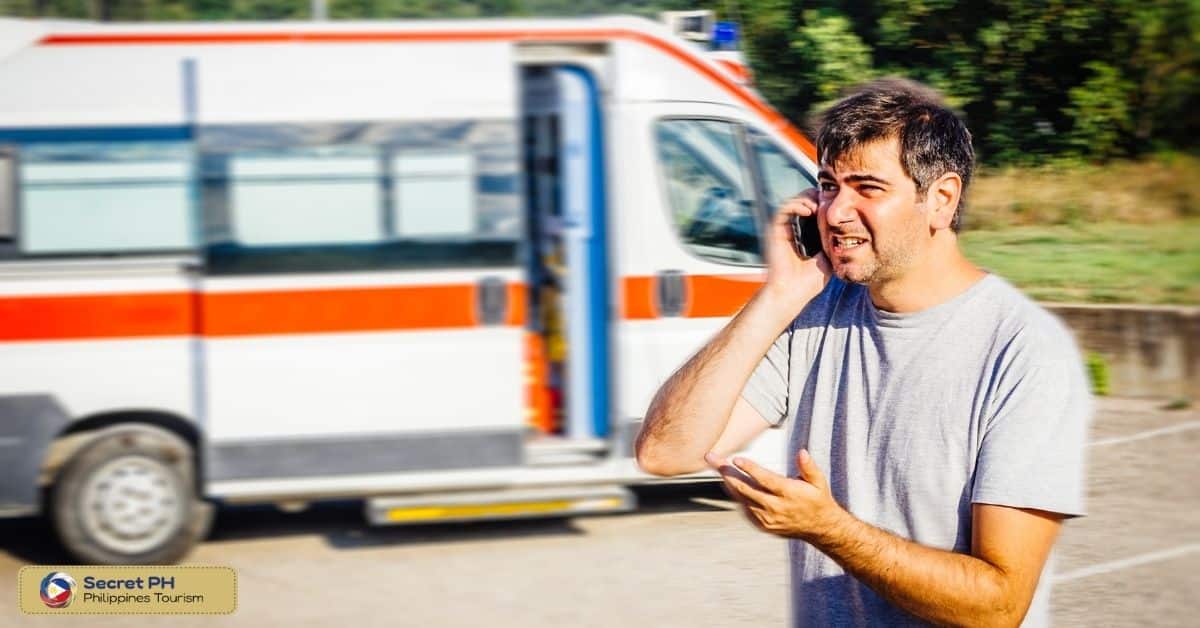
In conclusion
It is essential to be prepared for emergencies by creating an emergency plan with your family, preparing an emergency kit, knowing your evacuation routes, staying informed during emergencies, and being aware of the various emergency hotlines in the Philippines.
It is also important to know what to expect when you call for help and how to handle common emergency scenarios. By following the tips outlined in this article, you can help ensure your safety during an emergency.



